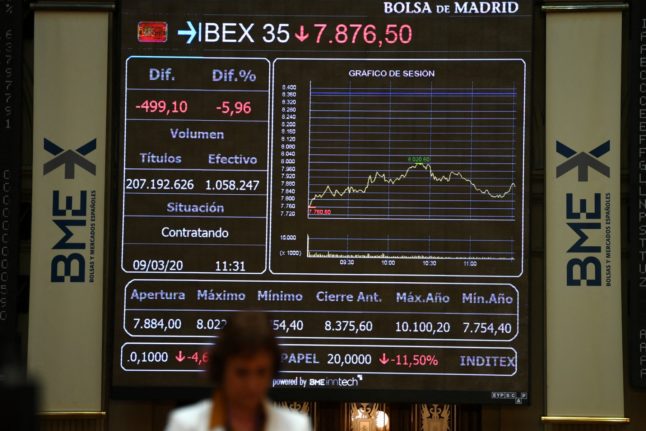What are index funds?
According to a basic definition by Banco Santander, “index investment funds are collective investment undertakings whose investment policy strives to mimic a certain index.”
What does that actually mean? And what is being mimicked here? Let’s look at an example. An index fund tracking the Vanguard Global Stock Index, for example, will put together an asset portfolio that essentially mirrors, or is similar to, at least, the Vanguard portfolio, in terms of composition.
So that means that if the Vanguard Index has any major changes in terms of portfolio makeup, the fund manager (more on the best of those in Spain below) changes your index fund to reflect that change.
Often in Spain index funds would be linked to the IBEX 35, Spain’s main stock exchange, but many people invest in regional or global funds too. Besides that, index funds basically function in the same way as other funds: the money in the fund is used to buy and sell assets to make profit.
Generally speaking, the benefits of index fund investing are their low cost, the little financial knowledge and time investment required from the investor, and their diversification. The drawbacks are the lack of downside protection when there are losses, the lack of choice in index composition, and the fact that your investments can’t ‘beat’ the market.
READ ALSO: The best high-yield savings accounts in Spain
How profitable can index funds be?
Owing to the fact that the entire point of index funds is to mimic a particular index, the way we think about profitability is slightly different than with other forms of investment.
In that sense, there’s really no such thing as a ‘good’ or ‘bad’ index fund based on its performance. How well the index fund performs is better thought of as how well it replicates the index it is supposed to be mimicking.
According to Rankia, a Spanish investment service and comparison site, index funds vary wildly in terms of returns, but compound annualised returns ranging from as low as -40 percent in the worst case examples to 55 percent profits in the best.
Obviously, how much you make in cash terms depends on the size of your original investment in the fund.
Can you invest in foreign index funds in Spain?
Yes, you can. In fact many people do, and fund managers often recommend doing so.
In Spain, the main fund managers that offer index funds include iShares, EBN Bank, Amundi, Vanguard, Pictet, Bankinter, Caixabank, BBVA, and Credit Suisse.
Which are the best index funds to invest in from Spain?
Most index funds are grouped on a regional basis, so there are several funds that mirror European markets, North American markets, the Pacific region markets, and so on, as well as broader global index funds.
According to Rankia, some of the best global index funds to invest in from Spain include:
Fidelity MSCI World Index Fund P-ACC-EUR
Total Expense Ratio (TER): 0.12 percent
3-year return: 11.73 percent
Vanguard Global Stock Index Fund EUR Acc
TER: 0.18 percent
3-year return: 11.63 percent
Amundi Index MSCI World – IE (C)
TER: 0.19 percent
3-year return: 11.51 percent
Vanguard ESG Developed World All Cap Equity
TER: 0.20 percent
3-year return: 9.29 percent
Vanguard Global Small-Cap Index Fund
TER: 0.29 percent
3-year return: 7.37 percent
Amundi Index FTSE EPRA NAREIT Global – AE (C)
TER: 0.34 percent
3-year return: 3.17 percent
How are index funds taxed in Spain?
Under the Spanish tax system, index funds are taxed as savings income as part of the IRPF (Spain’s income tax) and are included as capital gains and losses, as if they were any other type of stock market shares or investment product.
However, one of the advantages of index funds over other forms of investment is that if you sell one index fund in order to buy another, you don’t pay for the capital gains obtained because it is considered a transfer from one fund to another and is therefore exempt from taxation.
This makes it one of the best investment options if you want to get a higher return on your earnings via compound interest because you can take advantage of these capital gains to reinvest them instead of paying them in taxes.
As index funds in Spain are taxed in the same way as any other investment products that is subject to savings rates, they are taxed at the following rates:
19 percent for capital gains of less than €6,000
21 percent for capital gains between €6,000-€50,000
23 percent for capital gains in excess of €50,000
READ ALSO: Bank overdraft in Spain: What are the risks and penalties?



 Please whitelist us to continue reading.
Please whitelist us to continue reading.
Member comments